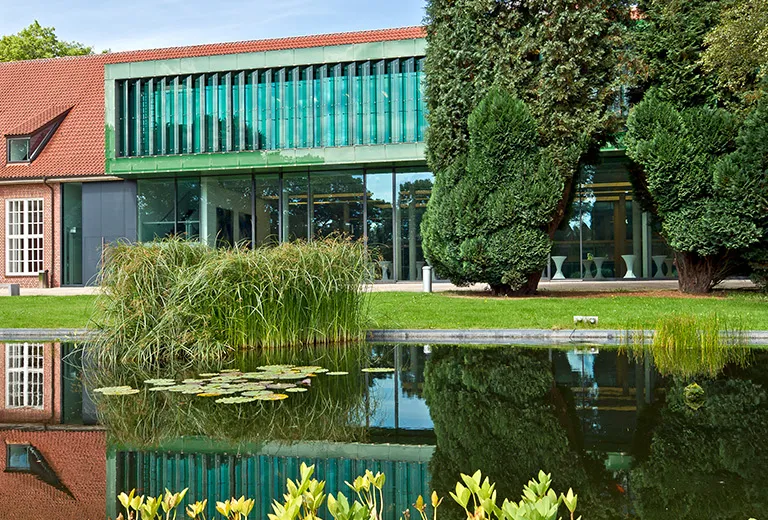

Nada Hashweh
Nada HashwehBA Integrated Social and Cognitive Psychology | 2015
Nationality: Palestine
Current Position: Specialist in Empowerment of Women from Migrant Backgrounds, Child Protection, and Violence Prevention, German Red Cross, Frankfurt am Main, Germany

Tell us what you have been up to.
I am a specialist in the empowerment of women from migrant backgrounds, child protection, violence prevention, and providing psychosocial support at the German Red Cross in Frankfurt. If I had to describe my job in one word, it would be ‘empowering’. Conflict management, empowerment, and integration, of two of the most vulnerable target groups – women and children – are my main focus areas.
Previously, I worked with Effect gGmbH in Bremen, an organization that helps refugees integrate within the German society. My role focused on being the cultural bridge between the refugees, who mostly spoke Arabic, and the government agencies, doctors, and personnel working with the refugees, who mostly spoke German. My German language skills allowed me to build stronger relationships with my colleagues and be a better advocate for the refugees I was working with.
Why did you choose Jacobs University?
My older sister attended Jacobs and I heard much about her positive experiences there. I had initially considered options in the United States but found that Jacobs University was one of the few options in Europe that offered the study program I was interested in – Integrated Social and Cognitive Psychology. Jacobs also boasted a diverse and vibrant international community, a comprehensive research-oriented environment, and internship opportunities, which I was eager to learn from. I was also offered an attractive scholarship and a financial aid package that made attending Jacobs quite feasible.
How has your Jacobs education helped you personally and professionally?
The study program at Jacobs and the possibility to learn from a diverse student body helped me reflect on the experiences I had growing up in Palestine, and allowed me to have a deeper understanding of human psychology. I was also able to take elective courses on social issues, such as human trafficking, disability studies, and social inequality, which deepened my interest to work within the non-profit and humanitarian sectors. During my studies, I also did an internship at the Palestinian Counseling Center in the West Bank and collaborated with professors from MIT (Massachusetts Institute of Technology) conducting research in the West Bank.
What did Jacobs do for you that you were not expecting?
Interacting with people from different backgrounds and making friends with people from different cultures and countries broadened my understanding of the world we live in. My motivations, which initially focused on helping Palestinians, evolved to a wish to help any human in need. Jacobs is the model and the living proof where all the people from diverse cultures and countries not only coexist, but come together beautifully in support of one another. It gives me hope and motivation that the future could be like this for the world, where our differences are not seen as the fuel for destruction and war, but rather as a catalyst to bring each other closer.
